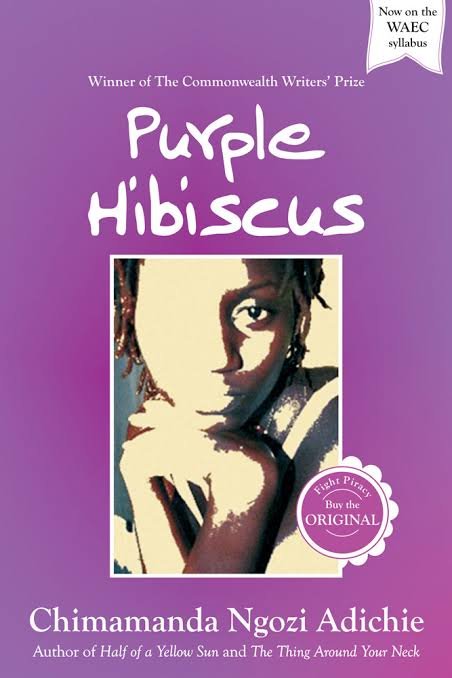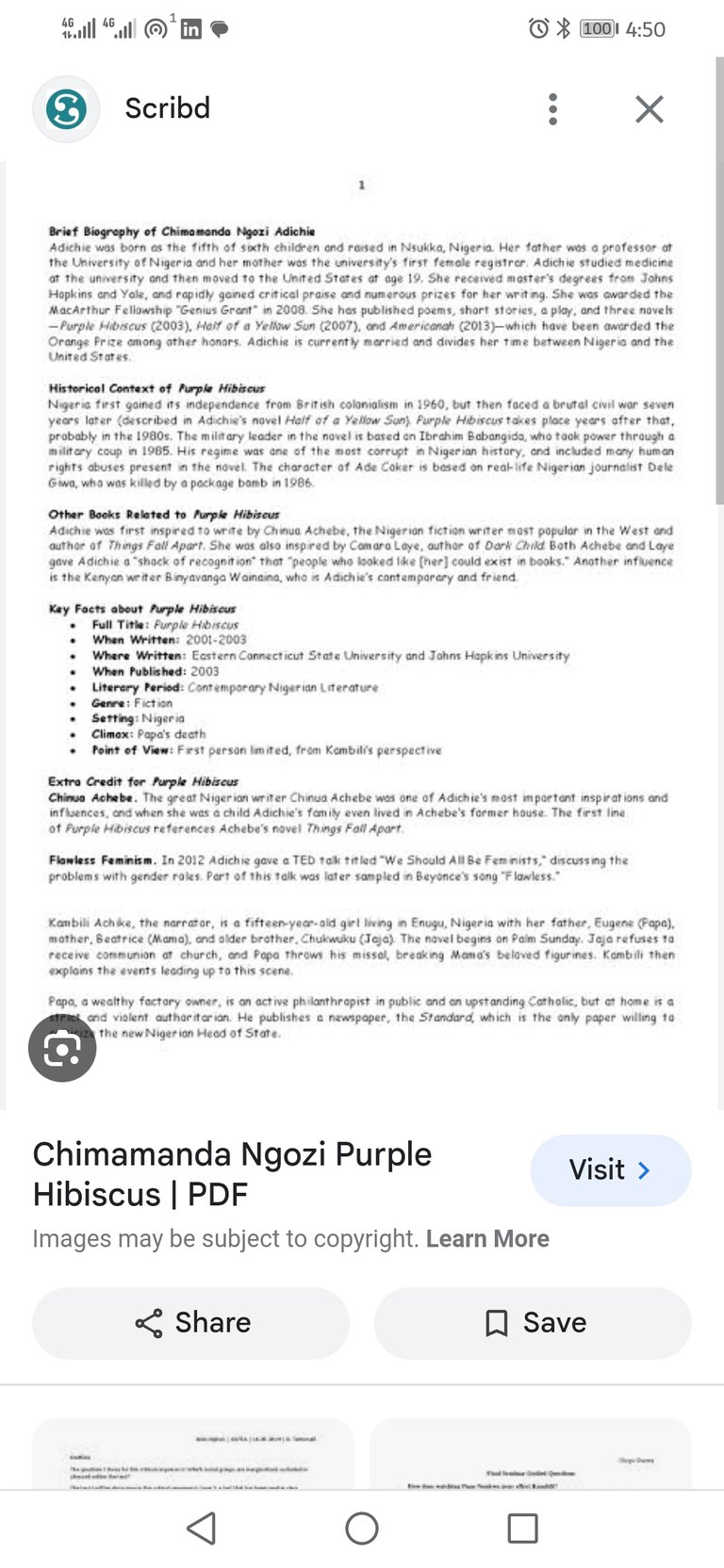
As I sit here, the echo of emotions stirred by "Purple Hibiscus" reverberates through my soul. Chimamanda Ngozi Adichie has woven an arras of human experience so vivid, so raw, that it feels as though she reached into the depths of my heart and painted its every hue with her words.
From the very first page, I was captivated by the tumultuous world of Kambili and her family. Set against the backdrop of Nigeria's political unrest, the story unfolds with an intensity that grips you by the throat and refuses to let go.
Adichie masterfully intertwines themes of familial love, oppression, and rebellion, crafting a narrative that resonates with aching familiarity.
The emotional core of the novel lies in the turbulent relationship between Kambili and her father, Eugene.
His strict adherence to religious doctrine is suffocating, his temper a looming shadow that casts a pall over their household. Yet, amidst the chaos, there are moments of tenderness that pierce through the darkness like rays of sunlight on a stormy day.
These fleeting instances of connection between father and daughter are as heartbreaking as they are beautiful, reminding us that love, in its purest form, can transcend even the deepest wounds.
However, it is Kambili's journey of self-discovery that truly steals the show.
As she navigates the tumult of adolescence, her innocence gradually gives way to a quiet resilience, a steely determination to forge her own path in a world dictated by tradition and fear.
Her evolution is a symphony of emotions, a crescendo of courage and vulnerability that left me breathless with anticipation, yearning for her to break free from the shackles of her past and embrace the fullness of her potential.
Yet, for all its emotional depth, "Purple Hibiscus" is also a tale of action, of rebellion against the oppressive forces that seek to silence the voices of the marginalized.

The climax of the novel unfolds with a ferocity that is as exhilarating as it is terrifying, a cathartic release of pent-up rage and defiance that leaves an indelible mark on the reader's psyche.
In the face of injustice, Kambili and her family stand tall, their courage a beacon of hope in a world shrouded in darkness.
As I turned the final page of "Purple Hibiscus," I was overcome with a sense of profound gratitude.
Gratitude for Adichie's fearless storytelling, for her ability to shine a light on the complexities of the human experience with such honesty and compassion. But above all, gratitude for the reminder that, in the midst of adversity, it is our capacity for love and resilience that sustains us, that carries us through even the darkest of times.

In the end when Jaja had to go to jail for a crime his mother committed out of his love for her, it was the sweetest thing.
The novel is a tribute to the power of love to conquer all. And for that, it will forever hold a special place in my heart.

Thanks for reading, Zeegirl